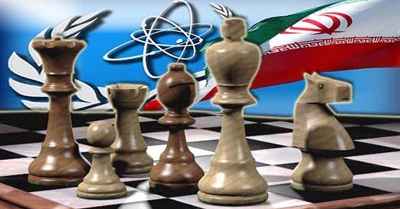Previously, Iran had taken advantage of the chaos in Iraq and Syria and the non-interventionist policy of the West to strengthen its hold in both countries and form a “Shiite Crescent” through Iran, Iraq, Syria, and Lebanon.
But as the international community realized that the threat posed by the Islamic State cannot be dismissed and got ready to face it in earnest, Iran risked losing its position as the main power broker in the region. The Iranian regime attempted to lead the international community into believing that Iran and its allies
would be crucial to contain and eliminate the threat posed by the group.
To its dismay though,
Iran’s name was left out from the U.S.-led coalition that was assembled in late September to fight the Islamic State. With the war against the Islamic State turning into an international concern, the Iranian regime saw its power plummet in the region.
In Iraq, the Iranian regime lost its staunch ally Prime Minister Nouri al-Maliki, who was forced to revoke his bid for a third mandate before the U.S. intervened and conducted airstrikes against the Islamic State, which by then had occupied large swaths of northern Iraq. Maliki’s administration had been
the main conduit for Iran’s schemes in Iraq, allowing Tehran to strengthen its hold on its neighbor by marginalizing the Sunni community, which eventually set the stage for the flourishing of the Islamic State.
Iran risks losing another close ally, embattled Syrian President Bashar al-Assad, as the fight against the Islamic State has been extended to Syria without Assad being officially included in the effort. The coalition has opted to align itself with the moderate Free Syrian Army, which aims at toppling the Assad regime and replacing it with a democratic state.
In
a confidential report that sources of the National Council of Resistance of Iran (NCRI) have obtained from inside Iran, the Iranian regime’s Supreme National Security Council has expressed worries that the war against the Islamic State could eventually strengthen the Free Syrian Army and turn the tide against the Assad regime. Ali Khamenei, the Iranian regime’s Supreme Leader, has unequivocally stipulated that Syria and Assad’s regime are Iran’s red line, and must be preserved at all costs. Khamenei knows that if Iran loses its clout in countries like Iraq and Syria, its strategic depth and defensive line will eventually be pulled back within Iran’s own borders, triggering a crisis that will inevitably bring about the undoing and collapse of the ruling regime.
Feeling spurned, the Iranian regime has made frantic efforts to save face and avoid losing its grip on the situation.
Hassan Rouhani, the president of the Iranian regime, asserted during
his speech in the UN’s General Assembly that the West must step aside and allow Iran to lead the fight against the Islamic State.
Khamenei, visibly irked by the events, questioned the motives of the newly formed coalition and
blamed the U.S. and UK for giving rise to the Islamic State.
Qassem Suleimani, the head of Iran’s notorious Quds force, has initiated a photo-op
campaign in Iraq, attempting to pose as a game changer and influential figure in the ongoing battle against the Islamic State. Meanwhile, Iran’s terror network has
ratcheted up its activity against the
Sunni community in Iraq under the shadow of the confusion surrounding the fight against the Islamic State.
The next few months will be decisive for the Iranian regime, which sees a strategic defeat looming on the horizon as all of its red lines in the Middle East are being trampled. Its way out would be to thwart the international coalition’s efforts to its advantage, as was the case in the first and second Gulf Wars. If Iran manages to carry out the scheme, the region will be engulfed in more bloodshed and sectarian violence, and the clashes and conflicts that are contributing to the overall chaos in the Middle East will be elongated.
Its success or failure will largely depend on the depth of the international community’s commitment to fight terrorism and uproot the threat of fundamentalism and extremism. The wrong choice can result in an irreversible regional disaster that will demand a very high price to fix.
